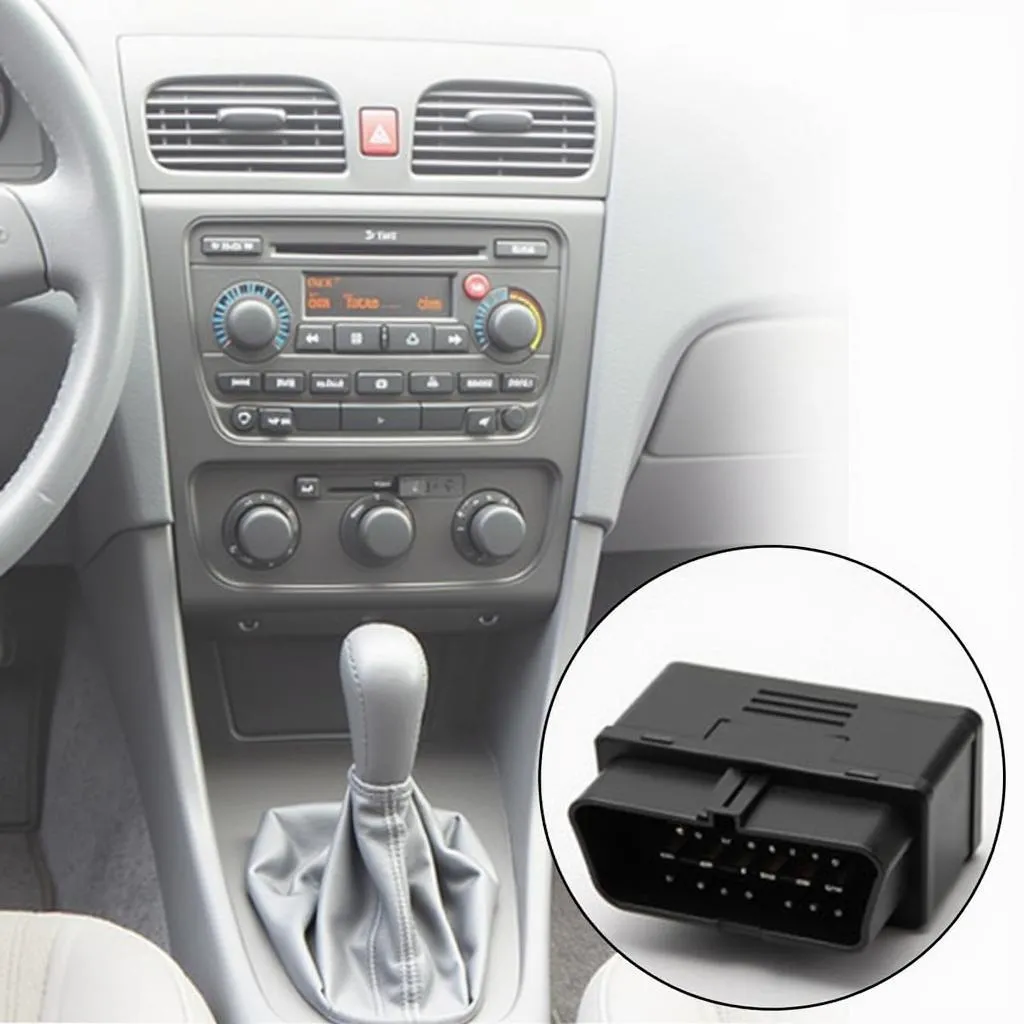Imagine this: You’re cruising down the highway in your beloved 2002 Volkswagen Golf, enjoying the wind in your hair and the open road ahead. Suddenly, the “Check Engine” light illuminates on your dashboard, and your heart sinks. What’s wrong with your car? What does that cryptic code mean?
Understanding OBD Codes: A Look into Your Car’s Health
OBD (On-Board Diagnostics) codes are a standardized language that your car uses to communicate with you and a mechanic about potential problems. They are displayed as a combination of letters and numbers, each representing a specific fault or issue within your vehicle’s systems. For a 2002 Golf, these codes can be accessed using a diagnostic tool that plugs into the OBDII port, usually located under the dashboard.
Why are OBD Codes Important?
OBD codes are crucial for understanding what’s wrong with your car and for diagnosing and fixing the problem efficiently. They give you valuable insights into the car’s health and allow you to take appropriate action.
Common OBD Codes in a 2002 Golf
Here are some of the most common OBD codes you might encounter in a 2002 Volkswagen Golf:
- P0300: Random/Multiple Cylinder Misfire Detected: This code indicates that the engine is misfiring, which can be caused by various issues, including faulty spark plugs, ignition coils, fuel injectors, or even a clogged air filter.
- P0171: System Too Lean (Bank 1): This code indicates that the engine is running too lean, meaning there’s not enough fuel being supplied. This can be caused by a faulty oxygen sensor, a leak in the intake manifold, or a problem with the fuel pressure regulator.
- P0420: Catalyst System Efficiency Below Threshold (Bank 1): This code suggests that the catalytic converter is not working efficiently, which could be due to a clogged converter, a leak in the exhaust system, or a problem with the oxygen sensors.
How to Troubleshoot and Fix OBD Codes
When faced with a “Check Engine” light, it’s essential to diagnose the code to identify the problem. A reliable diagnostic tool, like a Dealer Scanner for European cars, can provide you with more detailed information about the specific fault and its potential causes.
Once you’ve identified the problem, you can start troubleshooting and fixing it:
- Consult your owner’s manual: Your Golf’s owner’s manual will provide information about common problems and their solutions.
- Seek professional help: If you’re unsure about the problem or lack the necessary tools and experience, it’s best to consult a qualified mechanic specializing in European cars. They can perform a comprehensive diagnosis and repair the issue safely and effectively.
Finding the OBDII Port on Your 2002 Golf
The OBDII port on your 2002 Golf is typically located under the dashboard, near the steering column. It looks like a rectangular connector with 16 pins.
 OBDII Port Location on 2002 Volkswagen Golf
OBDII Port Location on 2002 Volkswagen Golf
What to do after reading a 2002 Golf OBD Code:
- Research the code: Understanding the meaning of the code will help you pinpoint the problem and take the appropriate steps.
- Check for common causes: Certain codes are linked to specific issues. For example, a P0300 code can indicate problems with spark plugs, ignition coils, or fuel injectors.
- Inspect the relevant components: Once you know the probable cause, visually inspect the components involved. For example, if you suspect a faulty spark plug, you can remove and inspect it for wear and tear.
- Replace faulty components: If you find a faulty component, replace it with a new, high-quality part.
- Clear the code: After making repairs, clear the code using your diagnostic tool. The “Check Engine” light should then go out, but if it re-appears, further troubleshooting is needed.
Common Questions About OBD Codes in a 2002 Golf
Here are some questions people often ask about OBD codes in a 2002 Volkswagen Golf:
- Can I clear the code myself? Yes, you can clear the code using a diagnostic tool, but it’s crucial to understand the underlying problem and address it to prevent the code from recurring.
- How do I know if the code is serious? Certain codes, like those related to emissions control or safety systems, are more serious than others. Always consult a mechanic for serious codes or if you’re unsure about their severity.
- Can I drive with a “Check Engine” light on? It’s generally not recommended to drive with a “Check Engine” light on, as it may indicate a serious problem. However, if the light is flashing, it’s crucial to stop driving immediately as it could be a critical issue requiring immediate attention.
Need Help with OBD Codes?
If you’re struggling with OBD codes in your 2002 Golf and need expert help, contact us via WhatsApp: +84767531508. Our team of experienced technicians can assist you 24/7 with diagnostics, troubleshooting, and repair solutions.
Remember, your car’s health is vital. By understanding your 2002 Golf’s OBD codes, you can identify potential problems early, prevent further damage, and keep your vehicle running smoothly for many miles to come.
